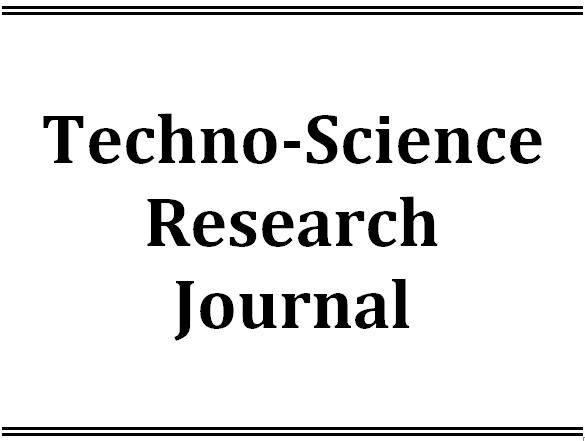Latest Issue
The Negative Experiences of Low-Income Citizen Commute and Their Intentions Toward Public Bus in Phnom Penh
Published: December 31,2025Reliability Study on the Placement of Electric Vehicle Charging Stations in the Distribution Network of Cambodia
Published: December 31,2025Planning For Medium Voltage Distribution Systems Considering Economic And Reliability Aspects
Published: December 31,2025Security Management of Reputation Records in the Self-Sovereign Identity Network for the Trust Enhancement
Published: December 31,2025Effect of Enzyme on Physicochemical and Sensory Characteristics of Black Soy Sauce
Published: December 31,2025Activated Carbon Derived from Cassava Peels (Manihot esculenta) for the Removal of Diclofenac
Published: December 31,2025Impact of Smoking Materials on Smoked Fish Quality and Polycyclic Aromatic Hydrocarbon Contamination
Published: December 31,2025Estimation of rainfall and flooding with remotely-sensed spectral indices in the Mekong Delta region
Published: December 31,2025Effect of Different Irrigation Methods on Water Use Efficiency in Rice Soil Column Test
-
1. Faculty of Hydrology and Water Resources Engineering, Institute of Technology of Cambodia, Russian Federation Blvd., P.O. Box 86, Phnom Penh, Cambodia
Received: September 12,2023 / Revised: January 28,2024 / / Accepted: March 25,2024 / Available online: April 30,2025
Rice plays a crucial part in Cambodia’s agricultural landscape, serving as a primary food source for the population. The limited water in dry season becoming an increasing concern in the region,optimizing irrigation methods is to modify water consumption in rice production. This study was conducted to investigate the effect of three irrigation methods on the grain yield and water use efficiency of rice crops in soil columns under a nethouse with glass roof. A field experiment was conducted at the Cambodia Agriculture Research and Development Institute (CARDI), Cambodia. Rice was planted in February 2023 under different three irrigation methods. Three irrigation regimes were examined during the growing period as follows: shallow deep shallow irrigation (T1), shallow frequency irrigation (T2),and continuous soil field capacity with irrigation depth at 10 mm daily (T3). Plant parameter and water amount data were collected during the growing period to evaluate the total yield and water use efficiency (WUE) of rice. The total average irrigation depth of different irrigation methods were 1050.67, 830.69 and 616.8 mm for T1, T2 and T3,repsepectively. According to results of effect on grain yield and WUE were found significant difference. Both grain yield and WUE of T1 treatment obtained the highest value followed by T2,and T3 treatment, respectively.

